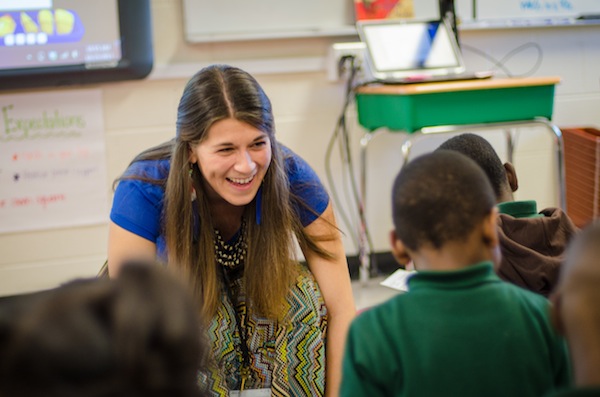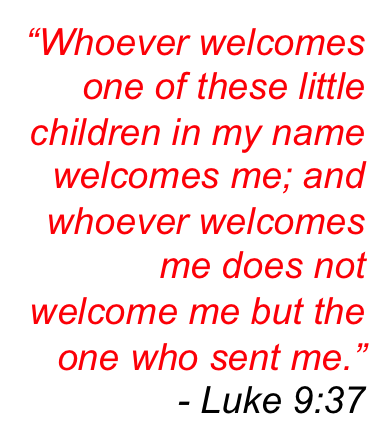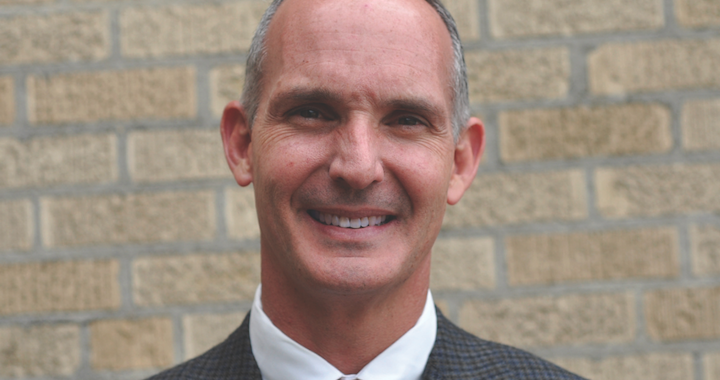A few weeks ago a friend was raving about the impact the Memphis Teacher Residency was having in Memphis schools by recruiting, training and supporting effective teachers. Wanting to learn more, I’m chatting today with Director David Montague.
David, you’ve said urban education is the greatest social justice and civil rights issue in America today. Why?
Urban education is a civil rights issue because of the lack of sameness and universal quality for all children. It is also a justice issue because of the inherent marginalization from society that it fosters.
Martin Luther King said the Civil Rights Movement was a revolution. But not a revolution to overthrow or “get out.” It was a revolution to “get in.” Universal Quality was a key feature of the Civil Rights struggle. The request of activists was to get in to the sameness that most Americans enjoyed, to enjoy a share in the opportunities that the American economy and education system provided.
However, today, this request has not been filled. Nowhere is this dream more distant than in the realm of public urban education. The Civil Rights leaders of the 1960’s said “education was the gatekeeper of citizenship.” An education that excludes a group of children from the opportunities and benefits of a society is a justice issue.
So what were you seeing in Memphis schools that begged for justice?
In our nation’s largest urban centers, and in Memphis, our education sector is incredibly segregated—83% African-American; 9% Hispanic; 7% White; 1% Other—and incredibly unequal: only 3% of Memphis City School graduates are deemed “college ready” according to 2012 ACT scores. The average ACT score in our lowest performing communities is between 14-15 while the highest performing public schools average 25 and the leading private school students average above 28.
And what is also astounding is that the dropout rate of teachers is higher than the dropout rate of students. In Memphis, 20% of teachers leave in or following their first year and nearly half of all secondary teachers leave within five years.
As a result, only 10% of children in poverty will graduate from college. More of these children will end up in jail than with a college diploma. The income disparity between high school dropouts ($17, 000 annually) and college degree earners ($45, 000) is staggering. For all of these disparities, and more, a gospel response is needed.
What makes MTR distinct from similar programs? What are some of its unique qualities?
Within the world of urban teacher residencies, we have three distinctives:
First, we’re Gospel-centered. The motivation for our work is distinctly Christian. We acknowledge and believe that Christ has met our needs through His death and resurrection. He has now called together a people, the Church, to worship Him and serve others. Our reason for teaching well—particularly those who have traditionally been the lowest achievers—is in worship and obedience to His call to love our neighbors as ourselves, beginning with the least, the poor, the marginalized.
 Second, we believe a strong sense of community is essential for success in low-performing urban schools. We attempt to build a strong sense of “team and family” among our teachers for their encouragement and support. Additionally, we believe to make measurable and systemic improvement, we must seek to provide entire neighborhood feeder patterns with outstanding teachers from kindergarten through 12th grade.
Second, we believe a strong sense of community is essential for success in low-performing urban schools. We attempt to build a strong sense of “team and family” among our teachers for their encouragement and support. Additionally, we believe to make measurable and systemic improvement, we must seek to provide entire neighborhood feeder patterns with outstanding teachers from kindergarten through 12th grade.
Finally, we care not only about the academic progress of a teacher, school and student, but also about the content of their character. We seek to improve academic achievement and school and individual culture.
Is MTR Christian, and what does that look like?
While we never use our school day or authority as teachers to evangelize, we are able to connect our faith to our occupation as we seek to worship God daily through offering Him the things He loves, such as: excellence in our teaching, patience towards all, dignity and value to each child, honesty in our efforts, optimism and joy in the hardness, etc.
So we are motivated by the gospel to love our neighbor as ourselves by providing equal access to quality education. We are encouraged by the gospel to persevere sacrificially for “unmerited suffering was and is redemptive.” We are informed by the gospel that our value and worth are not defined by the academic achievements of our students.
Kids who live in poverty face so many challenges, beyond math and English. Does a single classroom teacher really make a difference?
Now that is a really, really good question. Can they make a difference? Yes. A single capable teacher can certainly make a difference in one or several or even many student’s lives.
However, for systemic change to occur on any scale, there is the essential element of critical mass that is necessary. The difficulties and challenges in urban ed are so great that an equal pressure is required to “make a difference.”
Our strategy assumes this. Our vision is to combine the ideas of Christian Community Development with effective teaching practices. We partner with four neighborhoods and the feeder pattern (elementary, middle and high school) that serves the children of the community. We then offer in-school resources (effective teachers), out-of-school resources (summer academic camps, after-school tutoring) and the leverage of community partners (youth, health, church, community development) to surround the K-12 educational path for an entire community.
We believe that, in this way, we can bring the same, or better, quality of education to our city’s lowest income neighborhoods as any child in Memphis receives.
In MLK’s An Address Before the National Press Club from July 1962, he said,
…legislation and court orders tend only to declare rights; they can never thoroughly deliver them. Only when people themselves begin to act are rights on paper given life…”
I believe this “life-giving action” is the particular role of God’s people. We are specifically called to love our neighbor as ourselves (act) so that the legislation and court orders creating the ideal of equal education can be delivered to their intended recipients (given life).
 What’s been the impact? What have you seen in schools and lives?
What’s been the impact? What have you seen in schools and lives?
To date, our impact has been early, small, yet significant. In terms of clustering teachers in same schools, our progress has been exciting. Of our 150 teachers and residents, we have 42 serving in the Orange Mound neighborhood and 35 serving in Graham Heights. Ten out of 12 seventh and eighth teachers at Kingsbury Middle School are MTR graduates. We have 21 teachers at Cornerstone Prep in Binghampton. Principals largely are very interested in hiring MTR graduates for both the content of their character and spirit as well as their effectiveness.
The teacher effectiveness data on our MTR graduates has been very promising. This September according to an evaluation report produced by the Shelby County School district, MTR teachers were found to have significantly outperformed non-MTR teachers in Memphis City Schools with 1-5 years experience.
Additionally, the Tennessee Higher Education Commission stated in their November 1, 2013 Higher Education Report Card that “Memphis Teacher Residency has more completers in the highest performing percentile in comparison to all teachers performance distributions across the state in both TCAP composite and End of Course Exams composite.”
Finally, we are extremely encouraged by the retention rates of our teachers. In our first residency class, MTR experienced 90% of graduates completed their four-year commitment and 76% have returned to work in a Memphis classroom (or on MTR staff) for a fifth year.
What an impressive group of teachers…
They are. Here’s an email from an MTR teacher:
Morale at __________ is at an all-time low. The principal is getting pressure because of the number of students failing. So teachers are getting pressure from him to do way more stuff that looks a lot like jumping through hoops and not teaching. Parents are mad because kids are failing, and kids are starting to give up.
I couldn’t be more excited. It’s in darkness that light shines the brightest. I get to be joyful, not give up on the kids, do the logistical things that are asked of me without complaining, and I get to love and encourage teachers that are on the verge of quitting. They weren’t lying when the said urban ed is a mess. But I’m stoked that my JOB is to be part of the solution to a problem that is worth giving my life to. And unlike other missionary work I don’t have to raise my support.”
Learn more about the Memphis Teacher Residency, HERE.

